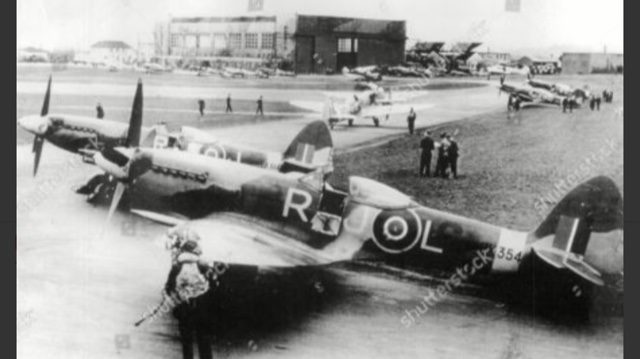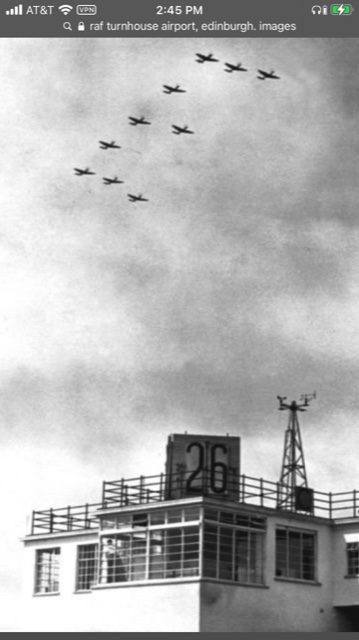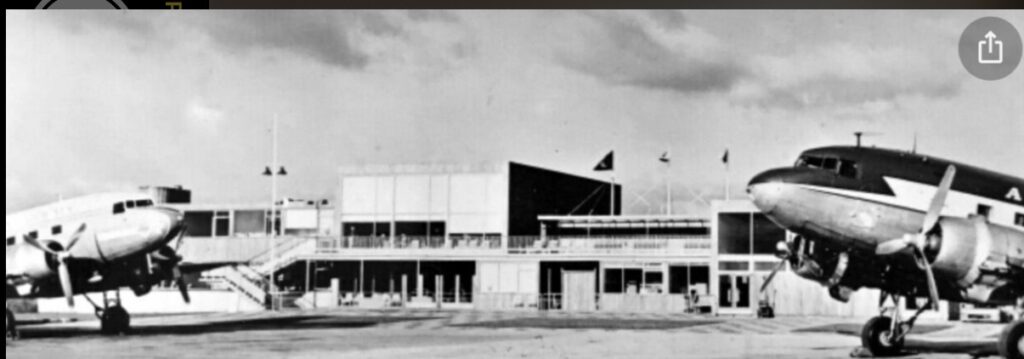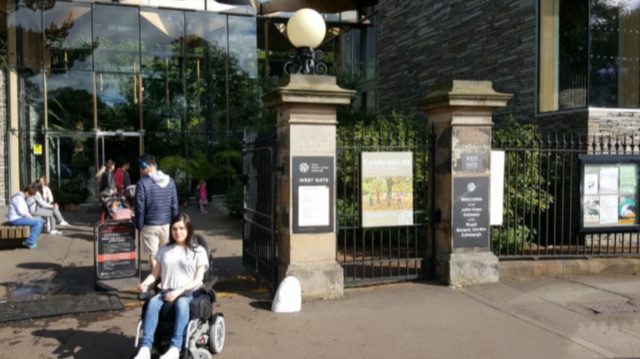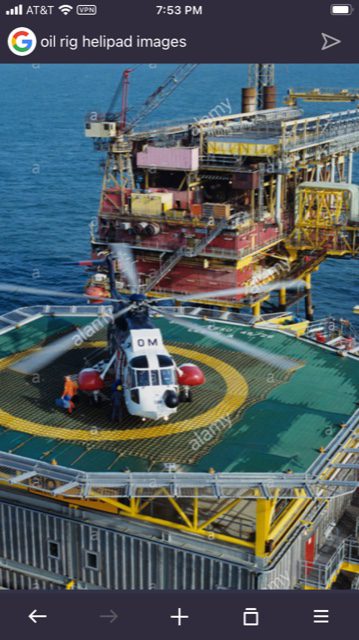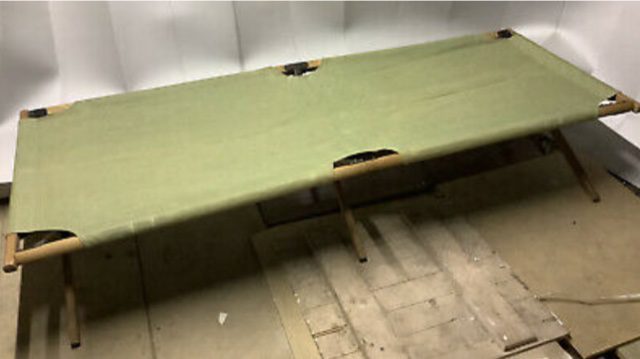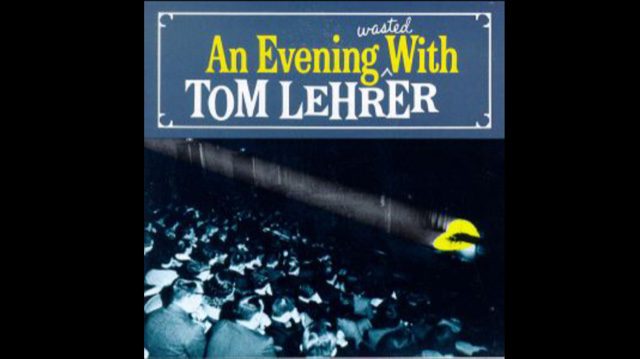Out of the Camp Ch. 36 – Turnhouse, Morcambe Bay and more
Around the same time that I left Moredun Primary School to go to the Inch Secondary Modern, we moved house. I was six when we arrived in Moredun from Duddingston Camp and had turned twelve when we moved to Gilmerton Dykes Crescent. My mother was always talking about “exchanges”. I didn’t understand it but basically, if you found another council house tenant who wanted to move, the council allowed you to swap your council house for theirs. I didn’t know at the time why we moved because I wasn’t aware of any problems other than the normal challenges we all face in life from time-to-time. On reflection, I guess it makes sense that a conventional house would always be preferable to a prefabricated one. So it made no sense to me that not very long after having moved to Gilmerton Dykes my mother was once again talking about getting an exchange. Our house, actually it was more like a flat (or apartment) and one of four dwellings – 2 up/2 down – in a block, with ours being one of two on the upper floor. Below us we’re a family called Smith; really! That was their name. I don’t remember anything about any kids or even about Mrs Smith, of which I’m sure there was one, because her husband shouted at her a lot. I don’t remember him as being a bad person, only that he liked a dram and therein lies the nub. When Mr Smith drank, he also would sing, sing at the top of his voice and not always in tune. Now these houses – they’re still there, by the way – while certainly much more pleasant in appearance than the prefabs, unfortunately weren’t sound-proofed all that well with the result that when Mr Smith sang we could hear every note. He would typically sing traditional Scottish airs or songs by Elvis or Bill Haley and he had this uncanny ability to cover a number of keys during a single tune which wasn’t always easy on the ear
Meanwhile, the offshore energy industry on the European Continental Shelf continued to boom with what seemed like several announcements a month such as one new oil strike in the Northern North Sea, yet another gas field discovery in the Dutch North Sea Sector, production startup of one more new oilfield in Norwegian or UK waters, or a new gas field further south. Feeling almost as though we were being swept along in this tide of frenetic activity, we achieved yet another success for our little firm, namely our first Government contract. This operation located in the Morcambe Bay off the north west coast of England involved maintaining and manning radio stations on a number of the platforms there, of which, I think, there were six or seven. To win this contract involved submission of a company profile encompassing a full capability report which included reports of the company’s 10-year track record and a full client schedule, scope of expertise, listings of company’s insurances including offshore liabilities, subrogation indications, limits of coverage, etc., etc., current balance sheet and profit & loss statements, three years tax returns and any client or former client recommendations if available. The invitation to submit a bid actually demanded more data but please remember, this was forty years ago, and any other items that may have been listed left my consciousness decades ago! A few months into operations I was invited together with some office staff to visit a couple of the platforms. So, early one morning having successfully gotten ourselves to the heliport at Heysham we were issued life jackets, filled out our names on the chopper manifest, a given a brief run-down of emergency procedures. We were in the air in no time and set off on the 16-mile trip to the main platform. I think it took somewhere around 20 minutes to get there. The visit began with one of our radio guys showing us around the various facilities and an engineer who joined us explaining the extraction procedures and transfer to the pipeline taking gas ashore for processing. We hung out for a while in the radio room drinking coffee, chatting and observing the comms techs performing their duties. There were a number of platforms linked to the central unit which performed a variety of different functions, and we visited one of these installations briefly before returning to shore.
Circling back years prior to my entering the offshore industry, in fact, to those when I was still singing with ‘Listen’ and the year prior to our success in the national Melody Maker Rock contest. This victory led to our subsequent appearance on BBC2s ‘The Old Grey Whistle Test’ (see OotC-8 & 9) and the Parlophone release of our single, ‘Astral Boogie’. It was the year before this that Mary and I made another trip to Mansfield to see my former aunt, now biological mum to spend some time with her and visit some of my recently acquired siblings/former cousins who lived in the area.
Does that sound weird, or what? I’ll bet that’s the first time you’ve read anything like that this week! Anyway, I remember very little about that trip apart from conversations surrounding events of more than twenty years prior and just as I was about to take my first breath. There was, naturally, little or no information leading up to that which most likely took place in July 1945, rather the focus was on revelations made public nine months later, shortly after the rapid departure of my mother to North Wales to give birth. I refer to this in the prior episode, OotC-35. Also, there were further elaborations on my grandmother’s energetic and persistent efforts to make contact with or glean more information about my biological father. She was apparently told at some point by Canadian Military Authorities that he had been informed of my arrival, but no further information was given to her including any reaction he might have expressed or what his intention might be. I can’t help thinking that they likely told her this in the hope that she might go away! The night before Mary and I were to return home to London, Rose handed me a folded piece of paper with something written on it. As I unfolded it, I gave her a questioning look to which she offered no response other than to watch my reaction as I read the name she had written. I looked up at her and asked, “Is this his name?” “Yes”, she said, “but keep it to yourself.”
A year or two later we moved from London to north-east Scotland where the family remained, and during which time we added a fifth member, my daughter, before returning to London six years later in 1980. However, in the early days shortly after moving to Peterhead and before the business had taken off, Mary and the children stayed with her parents in Manchester to allow me to focus on establishing the business and to also give me time to find a home for the family. I suddenly found myself with time on my hands in the evenings in a strange town where I knew no one. I was living in one of the two rooms I’d rented and used as an office, sleeping on my Dad’s old WWII military camp cot, which comprised a canvass sheet with four sprung steel rods. It was actually quite comfortable the only disadvantage was having to dismantle and reassemble it each day as I occasionally had customers and potential customers drop by, and the site of this primitive antique canvass bed wasn’t something I particularly wanted to showcase.
I had no TV and AM medium wave radio reception was terrible, at least it was on my transistor radio, and this was in the days before broadcast VHF, and I found myself listening to American Forces Radio (AFN) in the evenings which was broadcast from Germany and from where reception was excellent after dark. I also managed to do quite a bit of reading, and in fact, and I don’t know why this has always stuck in my head but that’s where I read my first Nabokov novel ‘Pnin’, about an oddball university professor on some fictitious campus in New England. However, a radio programme one evening on AFN about American Veterans issues and the assistance and support available for current and former service personnel from the VA, and ways to make contact and seek assistance, started me thinking about Canadian forces and whether a similar support organization might exist for them. My brain was in overdrive now contemplating the possibility of beginning a search for my biological father now that I knew his name. Maybe a Canadian veterans administration existed to provide similar support for their service personnel, in which case they might be able to help me find him.
A habit I had developed in the months prior to moving north was to visit libraries and search their commercial sections for information that might be helpful in establishing and developing my business. Indeed, this is precisely how I found my first client by scouring Yellow Page Directories in Ealing Public Library in London where they had copies of all UK telephone books listing all TV & radio retailers in the Aberdeenshire area. Adopting the same approach I checked with the local Peterhead library for London telephone directories but finding none, as this was a small library compared to the one in Ealing, I spoke to a librarian describing my dilemma and she was able to pull out some government tomes both British and international filled with all kinds of information and contact details of countless departmental data including diplomatic, defense, energy, transportation and countless others. I initially wrote to three entities, the Commonwealth Liaison Office Personnel Division at the British Ministry of Defense in Gloucester, the Royal Canadian Air Force Joint Staff in Ennismore Gardens, South Kensington, London and the Canadian High Commission Defense Liaison, Grosvenor Square, London. These letters led to extensive correspondence with all of these offices, and others to which they referred me but, ultimately and to cut a long story short, I made contact with both the Canadian Department of Veterans Affairs and the Public Archives of Canada, both of which were located in Ottawa and in both cases with whom I initiated lengthy correspondences. It seemed that with each letter there was an additional snippet of information that, ultimately, proved invaluable. For example, and remember, all I had was his name, with no rank or any other identifying information and each letter began in the subject line with his name. In one reply from the Public Archives office, they included a middle initial which I hadn’t previously known. Later, in a response from the Veterans Affairs office, they also included in the subject line, not only his name but also his military number. I should mention that I haven’t revealed his name because there are chapters to this saga yet to be revealed, but primarily his name was so unusual that I was pretty sure that I had the right guy.
Images.
(1) RAF Turnhouse, 1940s. (2) Flying in formation, Turnhouse, Edinburgh. (3) Terminal building, Turnhouse, Edinburgh. 1940s. (4) Our house in Gilmerton Dykes looked exactly like this one. We lived in the upper floor, right side 1959-63. (5) West Gate, Botanical Gardens Edinburgh. (6) Morecambe Bay Gas Field, Central Platform. (7) Platform Helipad. (8) BBC Old Grey Whistle Test Logo. (8) This is almost exactly like my dad’s WWII cot that I slept on while living in the neglected tenement I started my business in in Peterhead. Only difference is that my dad’s had metal rods whereas it looks like this one has wood. (9) One of the Tom Lehrer LPs that my dad bought.
